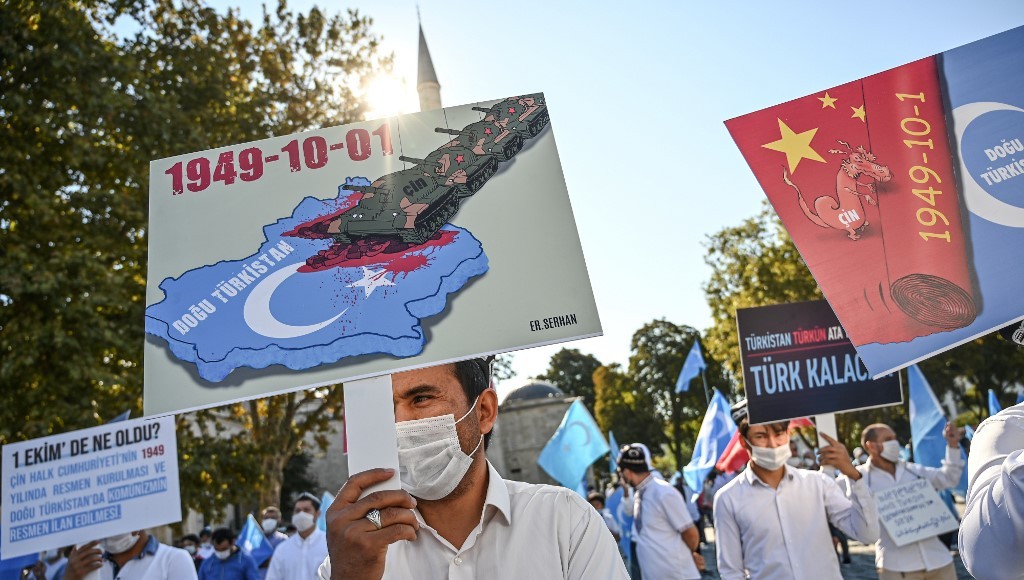The photo of a bill proposed by the ruling Justice and Development Party (AKP) to ratify an extradition treaty with China, which has led to fears among the large Uighur diaspora in Turkey, was shared on social media after China’s recent ratification of the treaty.
The treaty was signed during Turkish President Recep Tayyip Erdoğan’s visit to Beijing in 2017.
Turkey has linguistic and cultural ties to the Uighurs, a Turkic and Muslim minority.
According to the photo, the bill was proposed by Parliament Speaker Mustafa Şentop from the ruling AKP on April 26, 2019 and sought to ratify an extradition treaty that could deport Uighurs from Turkey to China.
Since May 8, 2019 the bill has been awaiting approval by parliament’s Foreign Affairs Committee to allow debate in the general assembly, the photo also showed.
Fear arose among the large Uighur diaspora — estimated at 50,000 people — in Turkey after China on Saturday ratified the extradition treaty, a move likely to help Beijing incarcerate Uighurs seeking refuge in Turkey.
The treaty includes issues ranging from extradition obligations to the settlement of disputes, according to the full text released online by China’s top legislature.
China initiated a policy of maximum surveillance of Uighurs in the Xinjiang region after accusing a purportedly separatist Uighur movement of numerous deadly attacks.
China’s persecution of the Uighur minority in Xinjiang has escalated in recent years, amounting to what foreign experts have said is cultural genocide. More than 1 million people are thought to have been detained in internment camps, and there is growing evidence of re-education programs, restrictions on religious and cultural beliefs, enforced labor schemes and forced sterilization of women.
Although the Turkish parliament has not yet ratified the agreement, China’s alleged economic pressure on Ankara and the Turkish government’s silence regarding the issue have prompted fear among the Uighurs in the country, who fled from China to Turkey to escape persecution.
Scores of social media users in Turkey have expressed support for Uighurs using the hashtag #UygurlarİadeEdilemez (Uighurs cannot be extradited) on Twitter, calling on Erdoğan’s AKP and its ally the far-right Nationalist Movement Party (MHP) not to ratify the treaty with China.
“Those who think of themselves as nationalists should not approve this treaty. … If the MHP approves it, they can no longer talk about nationalism,” Selçuk Özdağ, deputy chairman of the opposition Future Party (GP), said in a written statement on Tuesday.
Some of Turkey’s opposition lawmakers, including Faik Öztrak, the vice chair of the Republican People’s Party (CHP), and Good (İYİ) Party parliamentary group chairman Lütfü Türkkan, have also alleged that China has deliberately delayed the arrival of COVID vaccines ordered by the Turkish government in order to get the treaty approved in parliament.
Turkish Health Minister Fahrettin Koca on Sunday announced that the arrival of the coronavirus vaccine developed by China in the country will be delayed “one or two” days due to a COVID-19 case in Beijing customs.
The vaccines were initially expected to arrive after Dec. 11, but Koca on Thursday said that issues with import permits caused a delay and that the first shipment of 3 million doses would be dispatched to Turkey on Sunday night and arrive on Monday.

